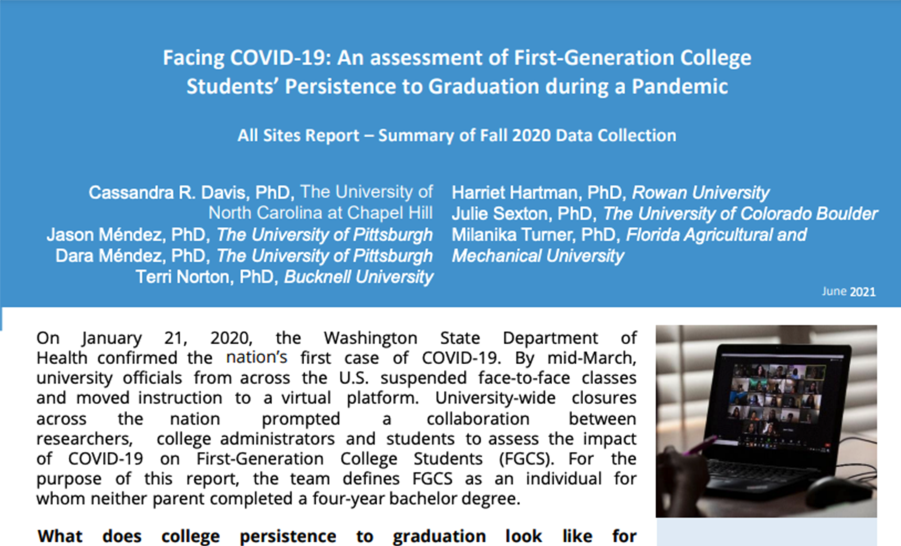Three Ideas for Post-Coronavirus Educational Recovery
There are many ways that schools can proactively address the inevitable and inequitable gaps caused by coronavirus-related school closures.
The University of North Carolina at Chapel Hill / June 2021

On January 21, 2020, the Washington State Department of Health confirmed the nation’s first case of COVID-19. By mid-March, university officials from across the U.S. suspended face-to-face classes and moved instruction to a virtual platform. University-wide closures across the nation prompted a collaboration between researchers, college administrators and students to assess the impact of COVID-19 on First-Generation College Students (FGCS). For the purpose of this report, the team defines FGCS as an individual for whom neither parent completed a four-year bachelor degree.
What does college persistence to graduation look like for FGCS living through the COVID-19 pandemic? And how, if at all, does COVID-19 exacerbate already existing barriers?
To help answer these pressing questions, researchers from an interdisciplinary team administered surveys to FGCS during the COVID-19 pandemic. Through analysis, researchers identified the effect of the pandemic on persistence to graduation for FGCS. The team also collected open-ended responses from FGCS who provided recommendations to their universities on how to improve supports.
This report presents the combined findings from all sampled sites. Reports from the each site are available below: